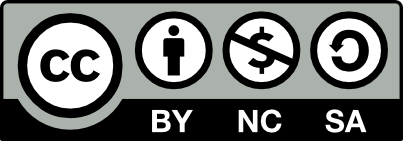Por favor, use este identificador para citar o enlazar este ítem:
http://hdl.handle.net/10609/93108
| Título : | Unexpected improvement of hand motor function with a left temporoparietal low-frequency repetitive transcranial magnetic stimulation regime suppressing auditory hallucinations in a brainstem chronic stroke patient |
| Autoría: | Thomas, Fanny Bouaziz, Noomane Amengual Roig, Julià Lluís Andrianisaina, Palmyre Schenin King Gaudeau-Bosma, Christian Moulier, Virginie Valero-Cabré, Antoni Januel, Dominique |
| Otros: | Universitat Oberta de Catalunya (UOC) |
| Citación : | Thomas, F., Bouaziz, N., Amengual, J.L., Andrianisaina, P.S.K., Gaudeau-Bosma, C., Moulier, V., Valero-Cabré, A. & Januel, D. (2017). Unexpected improvement of hand motor function with a left temporoparietal low-frequency repetitive transcranial magnetic stimulation regime suppressing auditory hallucinations in a brainstem chronic stroke patient. Frontiers in Psychiatry, 8(). doi: 10.3389/fpsyt.2017.00262 |
| Resumen : | We here report paradoxical hand function recovery in a 61-year-old male tetra-paretic chronic patient following a stroke of the brainstem (with highly degraded right and abolished left-hand finger flexion/extension disabling him to manipulate objects) who experienced insidious auditory hallucinations (AHs) 4 years after such event. Symptomatic treatment for AHs was provided with periodical double sessions of low-frequency repetitive transcranial magnetic stimulation (rTMS) (daily 1 Hz, 2 × 1,200 pulses interleaved by 1 h interval) delivered to the left temporoparietal junction across two periods of 5 and 3 weeks, respectively. At the end of each stimulation period, AHs disappeared completely. Most surprisingly and totally unexpectedly, the patient experienced beneficial improvements of long-lasting impairments in his right-hand function. Detailed examination of onset and offset of rTMS stimulation regimes strongly suggests a temporal relation with the remission and re-appearance of AHs and also with a fragile but clinically meaningful improvements of right (but not left) hand function contingent to the accrual of stimulation sessions. On the basis of post-recovery magnetic resonance imaging structural and functional evidence, mechanistic hypotheses that could subtend such unexpected motor recovery are critically discussed. |
| Palabras clave : | paciente con apoplejía del tronco cerebral alucinaciones auditivas estimulación magnética transcraneal repetitiva unión temporoparietal izquierda función motora |
| DOI: | 10.3389/fpsyt.2017.00262 |
| Tipo de documento: | info:eu-repo/semantics/article |
| Versión del documento: | info:eu-repo/semantics/publishedVersion |
| Fecha de publicación : | 28-nov-2017 |
| Licencia de publicación: | http://creativecommons.org/licenses/by-nc-sa/3.0/es/  |
| Aparece en las colecciones: | Articles Articles cientÍfics |
Ficheros en este ítem:
| Fichero | Descripción | Tamaño | Formato | |
|---|---|---|---|---|
| unexpectedimprove.pdf | 1,72 MB | Adobe PDF |  Visualizar/Abrir |
Comparte:
 Google Scholar
Google Scholar
 Microsoft Academic
Microsoft Academic
Este ítem está sujeto a una licencia Creative Commons Licencia Creative Commons


